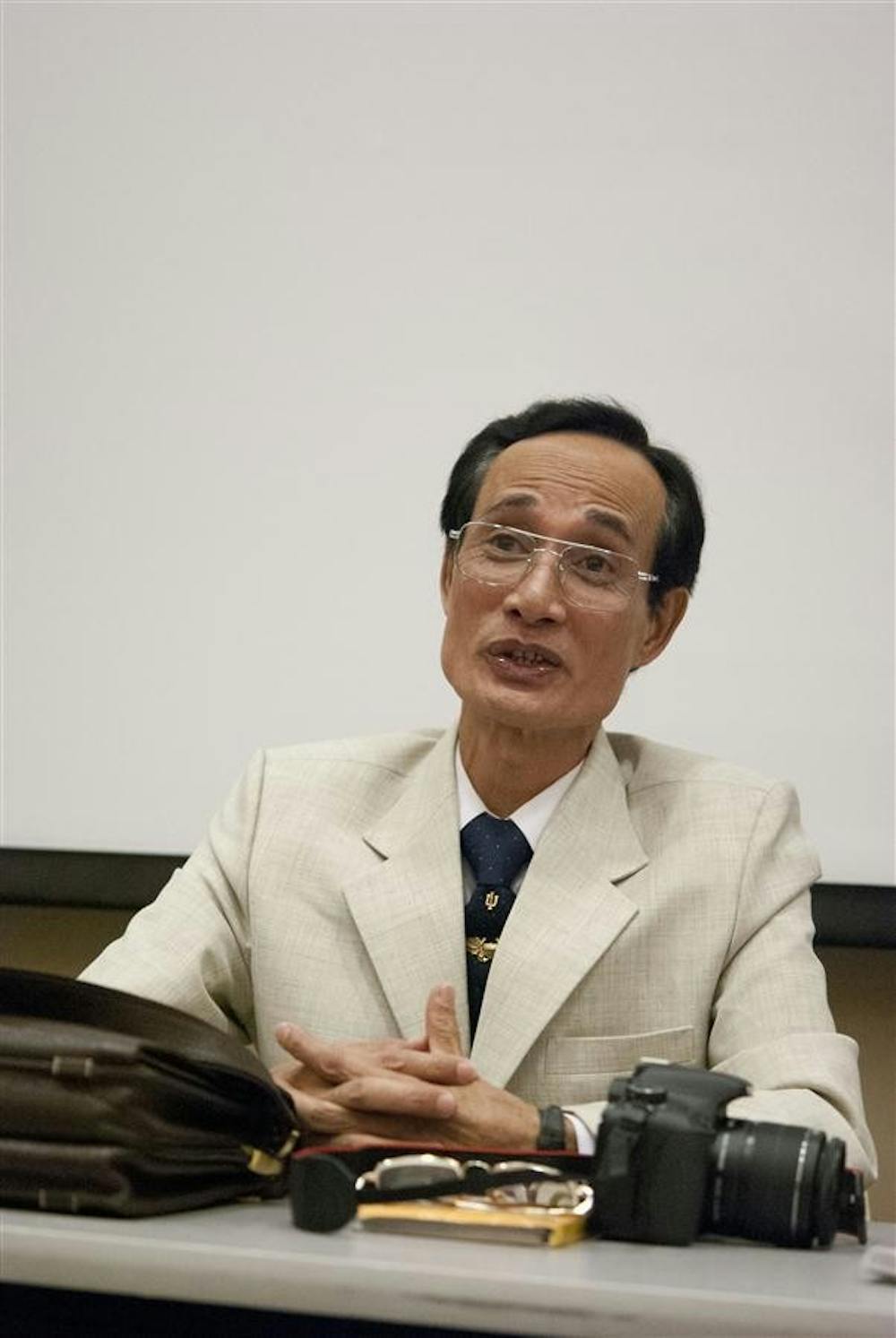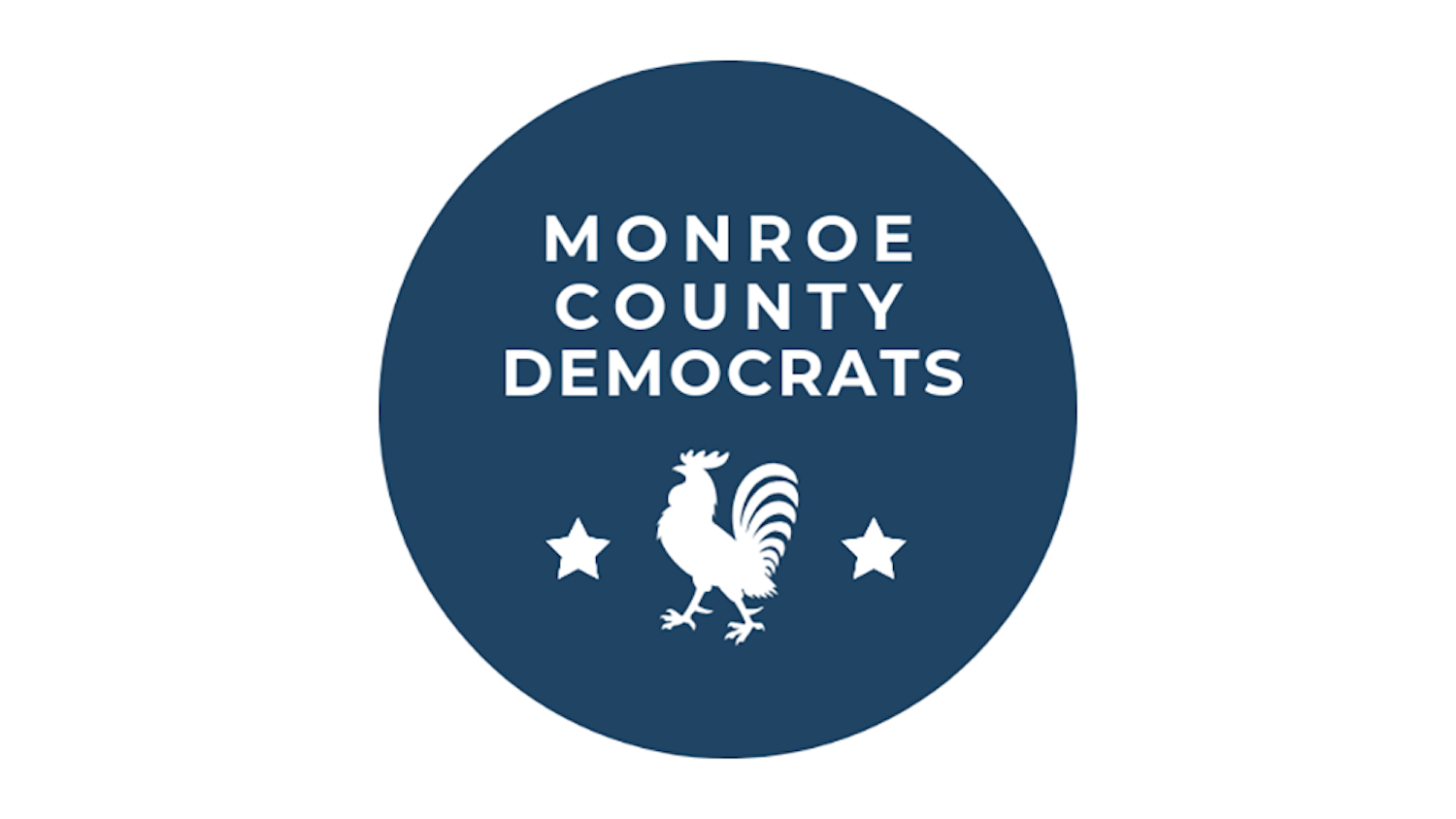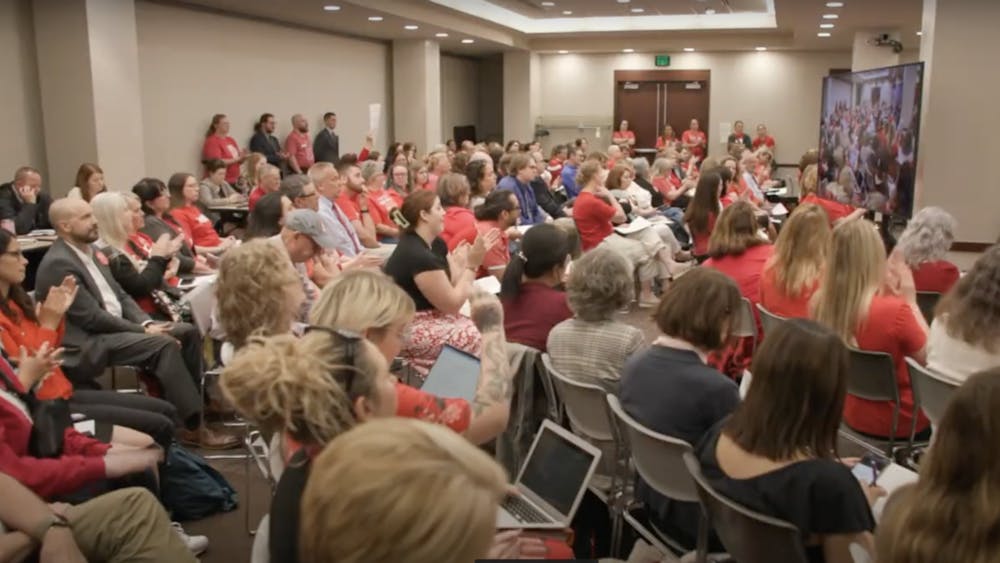A former Vietnamese soldier who rescued and saved the life of the last American prisoner of the Vietnam War spoke at a Themester event Thursday.
Nguyen Duc Toan was 17 years old when he joined the military in 1969. He lived in terrible conditions with little food and water in constant fear of the bombs that ceaselessly dropped from the skies.
Then came the day that changed his life.
At 5:15 p.m. Jan. 27, 1973, Toan’s unit shot down a jet circling overhead in Quang Tri Province. He watched as two pilots jumped from their equipment.
The first was killed by a shot to the head. U.S. Navy pilot Philip Kientzler was wounded in the leg.
Hai Toan, acting as translator for her father, said Kientzler began to panic as Nguyen Toan approached.
“He was feeling hopeless because he had just seen his friend get shot down, so he told my dad that he has a family that he has to return to in the United States,” she said. “My dad didn’t really know much English, but he saw the wedding ring on the soldier’s finger.”
As he looked into Kientzler’s face, Nguyen Toan recalled the many U.S. Marines that had been stationed in the villas where he grew up. They had always been kind to him.
They would come to his house, play with him, give him candy and talk to him.
He knew that, like himself, this man probably didn’t have any choice about being in this war.
He knew that, like himself, this man had left everything behind to be here, including a family.
At that moment, Nguyen Toan decided all he wanted was to keep this soldier alive. Nothing else mattered.
Nguyen brought Kientzler back to his bunker and cleaned his wound, wrapping a cloth over his hand so his ring wouldn’t be taken from him in prison.
Afraid that his fellow soldiers might kill Kientzler, Nguyen Toan decided to hide him on a boat and take him back to the North.
That night, Nguyen Toan risked his life to save his enemy’s as they wobbled along the coast of the East Sea on a broken riverboat intended for one person.
While they shared a small cake, Kientzler spoke of his four-year-old daughter and four-month pregnant wife back in the U.S.
“He was nervous and scared and wanted to keep talking to my dad because he had no idea if he would ever have another chance to talk to anyone else,” Hai said. “He wouldn’t stop, even though my dad was really tired after carrying him around because he was so big and heavy.”
Handing his jacket to the shivering American, Nguyen Toan reassured him in limited English, “Don’t worry, I take care of you.”
Nguyen Toan took Kientzler to Hoa Lo Prison in Hanoi, Vietnam, where he would be safer.
Before they parted, he expressed hope that they might meet again in a time of peace so they could sit down together and exchange stories and laughter as friends.
For years afterward, Nguyen Toan and his family tried to find out what happened to the American soldier.
More than 30 years after they met, a letter he sent finally arrived in the hands of the Kientzler family.
They wrote back to tell him Kientzler had died from a heart attack about 30 years after safely returning to the U.S., but they still had the photo albums he had made for Nguyen Toan, as well as his hat and medal.
In 2007, the two families met in Vietnam and spent time together as friends.
“My dad says that even though the war was a terrible thing, some good did come out of it,” Hai Toan said. “If it weren’t for the war, we wouldn’t be here right now.”
Ron Osgood, a former U.S. Marine and current professor in telecommunications who first met Nguyen Toan as a source for a documentary on the Vietnam War, said he was pleased with the results of this event that he had organized.
“Nguyen was great,” he said. “He showed a great deal of humanity. It’s amazing that we can fight against each other but still be able to hug and kick back with a beer and laugh together.”
Among those in the audience was Vietnam veteran Patrick Murray, who said he was touched by Nguyen Toan’s story.
“I was drafted into the military in 1969 when I was young, naive and innocent,” Murray said. “I didn’t know what to expect. It’s great knowing that people can grow beyond that and think about each other not as enemies, but as fellow human beings.”
Carol O’Dey, whose late husband fought in the Vietnam War, was also struck by Nguyen Toan’s humanity.
“He risked his own life to save a complete stranger,” she said. “I always hated war, and it gives me great hope in humanity and human nature that they can overcome something so traumatic and still have some good come out of it. It’s remarkable.”
North Vietnamese veteran tells story of humanity

Get stories like this in your inbox
Subscribe





